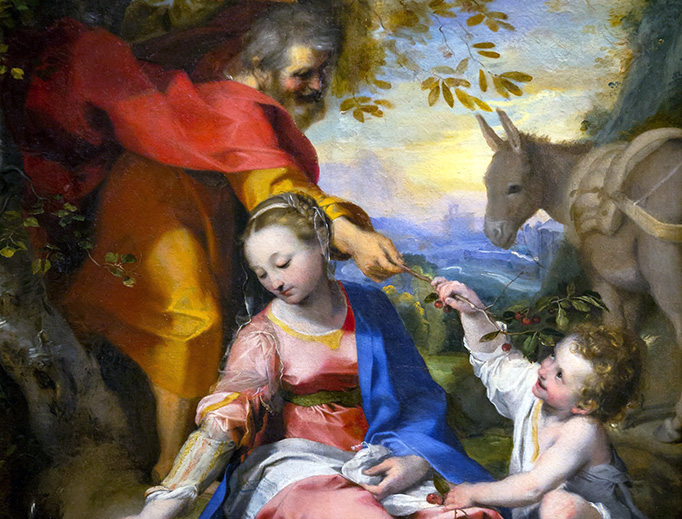As the Family Goes, So Goes the Faith
Faith strengthens families in a hostile world. Without the witness of families, the Faith weakens.

In December 2019, Green Bay Packers quarterback Aaron Rodgers was interviewed by his girlfriend Danica Patrick for her podcast “Pretty Intense.” In the interview, Rodgers discussed his workout, daily crosswords, his UFO sighting, and his alienation from his family and his faith. He said that he saw religion as “silly, antiquated, and not important.”
Rodgers is not alone as a high-profile celebrity who has distanced himself from faith and family. Widespread divorce, remarriage, delayed marriage and cohabitation have led to a significant decrease in religious practice, and the rise of the “nones.” According to an October 2019 Pew Research poll, 4 in 10 millennials lack religious affiliation. While 49% of Baby Boomers attend weekly church services with family, only 32% of millennials do so. Marrying and having children used to bring fallen-away people back to church. Now these rites of passage are no longer so certain. Some say they are “spiritual, but not religious” while others find solely secular ways to make life meaningful.
Sasha Sagan, daughter of astronomer Carl Sagan, recently published the book, For Small Creatures Such as We: Rituals for Finding Meaning in Our Unlikely World. According to her website, it is about a “new set of rituals for her young daughter that honor the joy and significance of each experience without relying on religious framework.” Rituals to mark life events like birth and death are still considered necessary, albeit without religion.
The Feast of the Holy Family, celebrated in December 2019, and the celebration of Candlemas on Feb. 2, illustrate the importance of the family for faith. Our Lady and St. Joseph lived the virtue of religion when raising Jesus. Though Jesus existed before Abraham (John 8:58), His parents still brought him to the Temple to be purified (Luke 2:22-38) and to Jerusalem for Passover (Luke 2:41-52). Our Lady and St. Joseph set an example. When Jesus was presented at the Temple, there were Simeon and Anna, who had lived their faith for generations. It would be his cousin, St. John the Baptist, who would make him known (John 1:19-37).
The relationship between family and faith is symbiotic. The sickliness of one makes the other fall ill. Some selected Scriptural passages are used to argue that Our Lord was no champion of so-called “traditional family values.” When Our Lord’s mother and brethren came to see Him, He said (Luke 8:21), “My mother and brethren are those who hear the word of God and do it.” His mother heard the word and followed it, an example par excellence. Our Lady followed God from the beginning. Though she was without Original Sin, she chose to do God’s will.
He spoke of how he would divide families (Luke 12:51-53). St. Thomas Aquinas’ desire to join the religious life faced opposition from his family, to the point they brought in a prostitute to seduce him. Early martyr saints like Barbara and Cecilia chose their faith in the face of familial disapproval, and even death. Jesus was not demeaning families but telling his followers to put God first.
Jesus tells the Sadducees that there is no marriage at the resurrection (Luke 20:27-40). Again, he is not degrading the Sacrament of Matrimony. The sacrament points to something greater than itself — the nuptials of Christ and the Church (Revelation 21:1-22). Jesus is warning against worldliness. Marriage, in all its inherent goodness, is not God.
Our Lord came not to destroy the family, but to fulfill it. The crises of faith and family are connected. Faith strengthens families in a hostile world. Without the witness of families, the Faith weakens. In a self-centered culture, the family is a “sign of contradiction” (Luke 2:34). Since the month of February celebrates the Holy Family, let us remember to put the Faith first, as Jesus said when he was found in the Temple (Luke 2:49) —“Did you not know that I must be in my Father’s House?”
- Keywords:
- family
- holy family

















